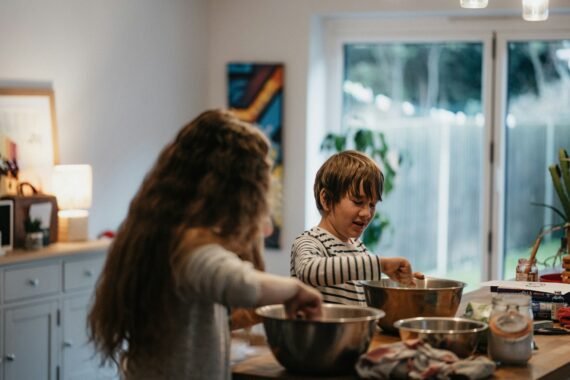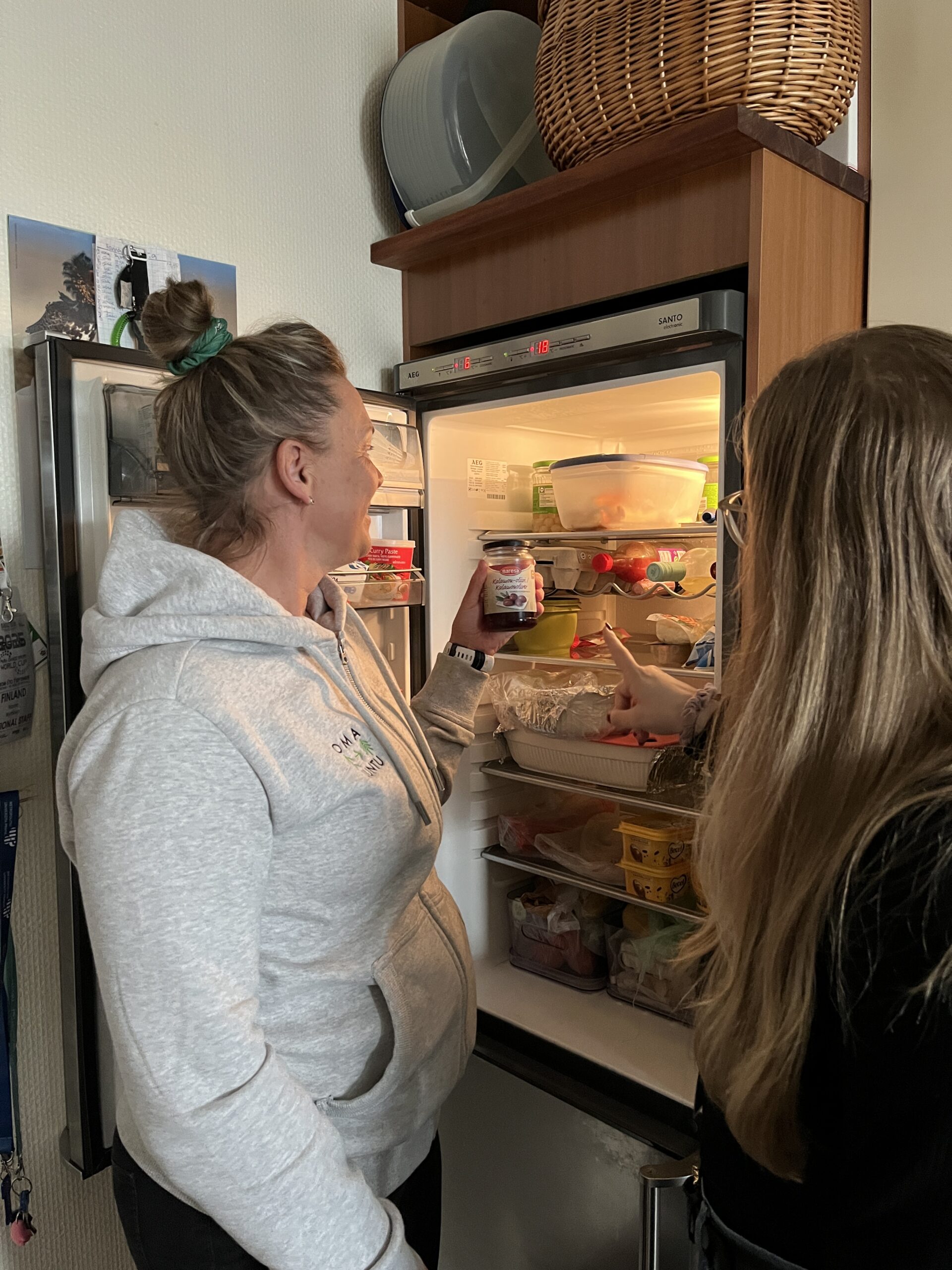Circular Food PilotProject Updates
How can everyday kitchen habits help stop food loss and waste?

CARE’s Circular Food Pilot is exploring changes in kitchens across Europe
From a half-eaten loaf of bread to a forgotten salad at the back of the fridge, it is the small, everyday moments that add up to create a global challenge. 29 September is the International Day of Awareness of Food Loss and Waste, reminding us that households play a crucial role. Through its circular pilots, CARE is exploring how changing everyday kitchen habits can reduce waste and provide valuable insights for systemic change.
Why does food loss and waste matter?
Around 8–10 % of global greenhouse gas emissions are accounted for by food loss and waste, while millions still face food insecurity (Source: UNEP Food Waste Index Report 2021). In the EU, households are responsible for generating more than half of all food waste, at around 70 kg per person per year (Source: European Commission).
This waste is not only an environmental issue; it also places a financial burden on municipalities for waste management, undermines biodiversity and squanders resources such as land, water and energy that were used to produce the food in the first place. For households themselves, reducing waste means saving money, making kitchens easier to manage and creating a sense of well-being when food is valued instead of discarded.
In response, CARE is working with 100 households across Europe on two circular pilots: one focusing on food and the other on clothing. By carrying out interventions in real-life settings, the project provides evidence on how to make circular living more accessible and practical, and increase its impact. And while this week we put food in the spotlight, next week we will turn to clothing – exploring how CARE’s second pilot tackles the challenge of textiles.
Turning awareness into action
Knowing is not the same as doing. People may be aware that throwing away food is harmful to the climate, the economy and their wallets, yet their behaviour often remains unchanged. Traditional behaviour-change campaigns tend to focus on providing information or motivating individuals, but this rarely results in changes to people’s routines.
CARE therefore adopts a practice theory approach. Rather than addressing individuals in isolation, this perspective considers the routines that constitute everyday life and the social and material conditions that sustain them. Practices change when three elements are reassembled: competences, meanings and materialities. By addressing these dimensions simultaneously, CARE creates conditions that can make it easier to adopt new routines.

Learning early: Children in the kitchen show how creative cooking can transform any ingredient into a meal, proving that reducing food waste starts at home. | Photo by Annie Spratt | Unsplash
Specifically, practice theory considers not only what people know or intend to do, but also the routines they perform and the contexts that enable or prevent these routines. This is why CARE’s projects combine skills development with social and material support. Households learn new skills (such as creative cooking with whatever they have available), assign new meanings to everyday actions (such as viewing yesterday’s dinner as today’s lunch rather than as ‘waste’), and acquire and use the resources that facilitate these practices (such as storage containers or planning aids).
The pilot includes advisory meetings and an online community. Tailored guidance helps households to overcome practical barriers between sessions, while peer exchange maintains momentum. Together, these supports create conditions that can make it easier for new kitchen skills to be adopted.
Three interventions – reshaping everyday food practices
CARE has designed three interventions that address everyday routines in which household food waste occurs: cooking, shopping, and storage. These interventions are being implemented step by step in five European regions – Finland, Norway, Sweden, Germany and Estonia – with adaptations made to suit local contexts while maintaining a consistent core design.

Valuing every meal: mindful choices and portions help prevent food waste and make the most of what we eat. | Photo by Adiptalk | Unsplash
- Cooking intervention: Workshops help households to become more confident at turning leftovers into new meals and to think more carefully about portion sizes. The aim is to change the perception of leftovers from ‘waste’ to ‘resources’.
- Shopping intervention: Here, the focus is on meal planning and smarter grocery shopping. Households will be checking their fridge and cupboards before shopping, writing shopping lists, and avoiding impulse buying. These routines can reduce the amount of food that goes uneaten.
- Storing intervention: Households learn techniques for keeping food fresh for longer. Using simple tools such as containers and fridge organisers, participants try storing food under the right conditions, labelling it and making it more visible to prevent spoilage.
The interventions do more than just help households to reduce their waste. By documenting which practices actually change behaviour, CARE generates knowledge that can inform policy frameworks, business innovation, and the work of f.e. civil society organisations. The results will demonstrate what works and how these lessons can be scaled up and adapted to different contexts across Europe.
From household practices to systemic insights
CARE uses a combination of baseline and exit surveys, food waste diaries, and ethnographic observations to track changes in household practices over time. In parallel, the project uses a carbon footprint tool to quantify the environmental impact of food and clothing practices. This offers households and researchers a clear picture of change.
In addition to environmental indicators, CARE also measures changes in household well-being, ranging from increased financial savings to reduced stress when managing kitchens and food. By generating robust evidence across multiple dimensions, the pilots provide systemic insights to guide policymakers, industry, and civil society in developing more sustainable food systems.
Join the conversation on circular food practices!
Transforming food systems requires action at all levels, from the kitchen to the community to the policy-making arena. Share your perspectives and learnings and get involved with CARE.
Together with CARE, we transform our world for the better.
Header image: Photo by Sri Lanka | Unsplash


